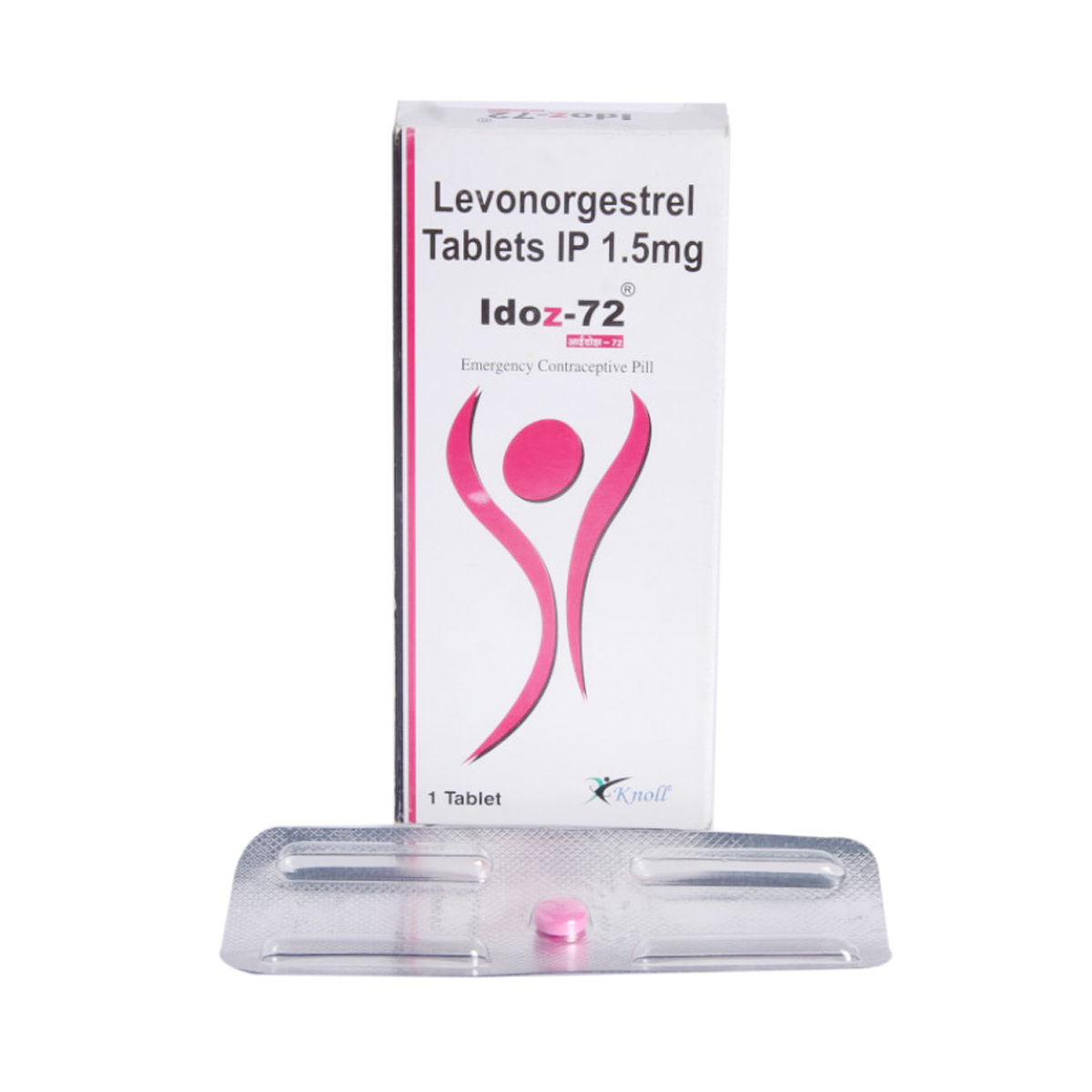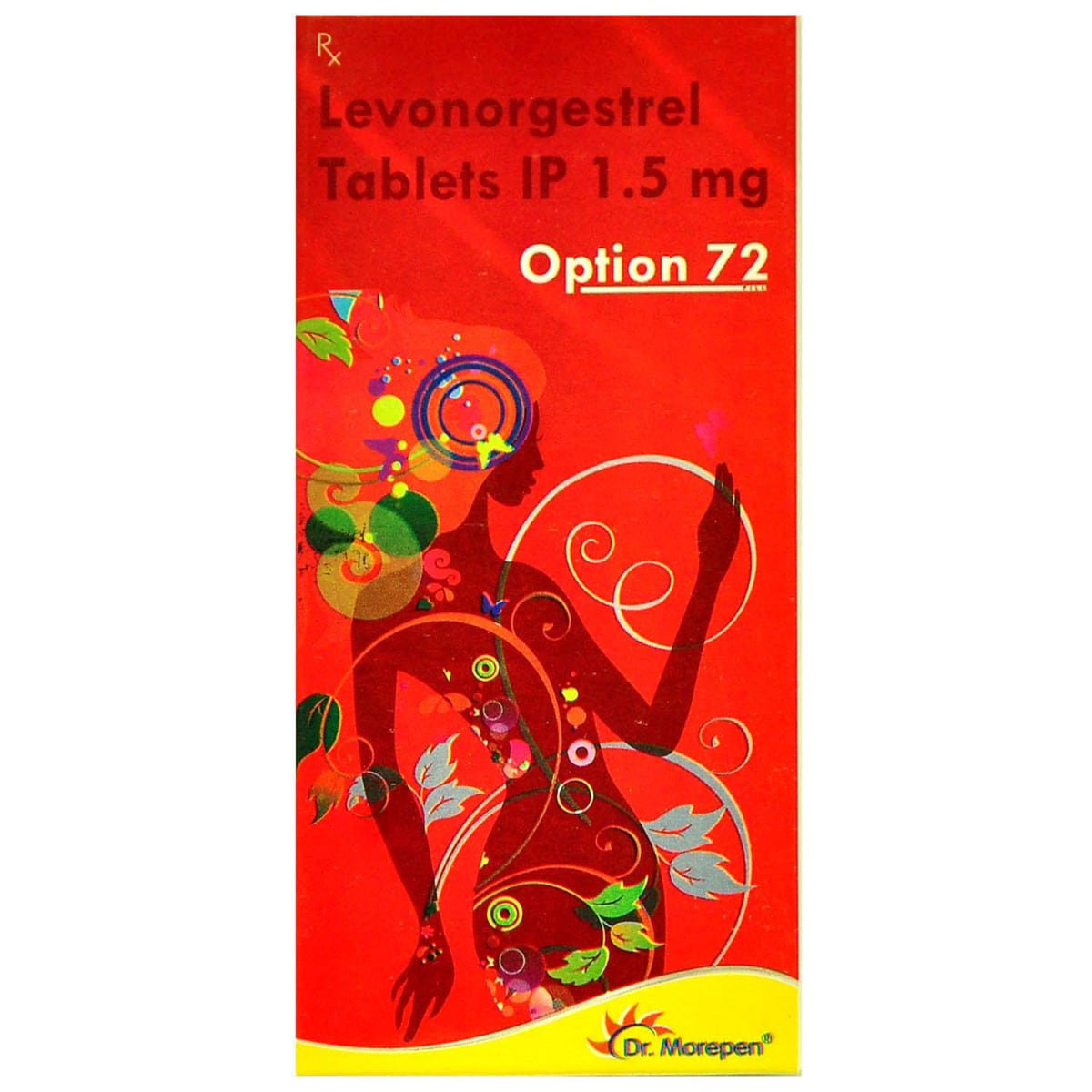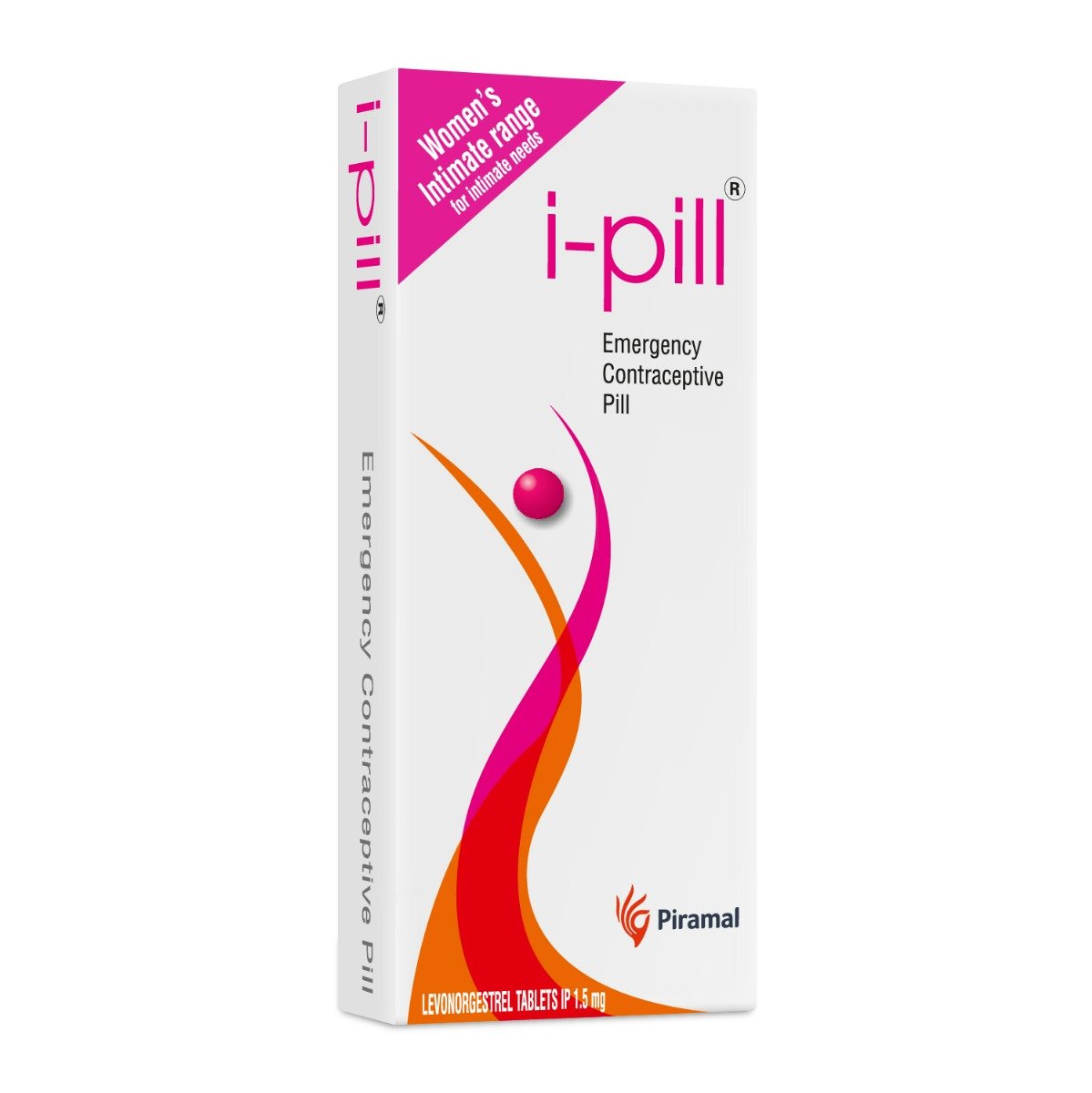Co-Pill 1.5 mg Tablet 1's


MRP ₹110
(Inclusive of all Taxes)
₹16.5 Cashback (15%)
Online payment accepted

secured payment

india's most trusted pharmacy

genuine products
Available Offers
Provide Delivery Location
FAQs
Disclaimer
Product Substitutes
Author Details
We provide you with authentic, trustworthy and relevant information
- Inform your doctor about the nausea and discuss possible alternatives to the medication or adjustments to the dosage.
- Divide your daily food intake into smaller, more frequent meals to reduce nausea.
- Opt for bland, easily digestible foods like crackers, toast, plain rice, bananas, and applesauce.
- Avoid certain foods that can trigger nausea, such as fatty, greasy, spicy, and smelly foods.
- Drink plenty of fluids, such as water, clear broth, or electrolyte-rich beverages like coconut water or sports drinks.
- Use ginger (tea, ale, or candies) to help relieve nausea.
- Get adequate rest and also avoid strenuous activities that can worsen nausea.
- Talk to your doctor about taking anti-nausea medication if your nausea is severe.
- Record when your nausea occurs, what triggers it, and what provides relief to help you identify patterns and manage your symptoms more effectively.
- Drink water or other clear fluids.
- To prevent worsening of pain, limit intake of tea, coffee, or alcohol.
- Include bland foods like rice, toast, crackers, and rice in your diet.
- Avoid lying down immediately after eating as it may cause indigestion or heartburn.
- Avoid acidic and spicy food as it may cause indigestion.
- Rest well; get enough sleep.
- Eat a balanced diet and drink enough water.
- Manage stress with yoga and meditation.
- Limit alcohol and caffeine.
- Physical activities like walking or jogging might help boost energy and make you feel less tired.
- Hydrate your body: Drink enough water to prevent dehydration and headaches.
- Calm Your Mind: Deep breathing and meditation can help you relax and relieve stress.
- Rest and Recharge: Sleep for 7-8 hours to reduce headache triggers.
- Take rest: lie down in a quiet, dark environment.
- Cold or warm compresses can help reduce tension.
- Stay Upright: Maintain good posture to keep symptoms from getting worse.
- To treat headaches naturally, try acupuncture or massage therapy.
- Over-the-counter pain relievers include acetaminophen and ibuprofen.
- Prescription Assistance: Speak with your doctor about more substantial drug alternatives.
- Severe Headaches: Seek emergency medical assistance for sudden, severe headaches.
- Frequent Headaches: If you get reoccurring headaches, consult your doctor.
- Headaches with Symptoms: Seek medical attention if your headaches include fever, disorientation, or weakness.
- Inform your doctor about dizziness symptoms. They may adjust your medication regimen or prescribe additional medications to manage symptoms.
- Follow your doctor's instructions for taking medication, and take it at the same time every day to minimize dizziness.
- When standing up, do so slowly and carefully to avoid sudden dizziness.
- Avoid making sudden movements, such as turning or bending quickly, which can exacerbate dizziness.
- Drink plenty of water throughout the day to stay hydrated and help alleviate dizziness symptoms.
- If you're feeling dizzy, sit or lie down and rest until the dizziness passes.
- Track when dizziness occurs and any factors that may trigger it, and share this information with your doctor to help manage symptoms.
- Use hot or cold packs on your breasts to help alleviate discomfort.
- Choose a supportive, well-fitting bra, preferably one that has been professionally fitted.
- Practice relaxation techniques to manage stress and anxiety that may accompany severe breast pain.
- Limit or avoid caffeine consumption.
- Eat a low-fat diet and focus on foods rich in complex carbohydrates.
- Rubbing evening primrose oil on your breasts may help balance fatty acids in the cells and reduce pain.
- Keep track of when your breast pain occurs and any other symptoms to determine if the pain is regular or not.
- Vitamin E supplements may help reduce pain for women who experience pain linked to their menstrual cycle.
- Over-the-counter pain relievers like acetaminophen or ibuprofen can provide relief, but be sure to consult your doctor for the correct dosage, as prolonged use may cause side effects.
Drug-Drug Interactions
Drug-Drug Interactions
Login/Sign Up
Using etretinate and Co-Pill 1.5 mg Tablet can cause severe birth defects.
How to manage the interaction:
Taking Etretinate with Co-Pill 1.5 mg Tablet can cause an interaction, consult a doctor before taking it. Do not stop using any medications without talking to a doctor.
Taking Co-Pill 1.5 mg Tablet with Tranexamic acid may increase the risk of blood clot formation which can lead to serious conditions such as heart problems and kidney failure.
How to manage the interaction:
Taking Tranexamic acid with Co-Pill 1.5 mg Tablet may leads to an interaction but can be taken if prescribed by the doctor. However, if you experience chest pain; shortness of breath; coughing up blood; blood in the urine; sudden loss of vision; and pain, redness, or swelling in your arm or leg, consult the doctor immediately. Do not stop using any medications without talking to a doctor.
Coadministration of Acitretin with Co-Pill 1.5 mg Tablet can increase the risk and severity of birth defects in unborn when taken by a pregnant woman.
How to manage the interaction:
Taking Acitretin with Co-Pill 1.5 mg Tablet together is generally avoided as it can result in an interaction, it can be taken if a doctor has advised it. Consult a doctor if you get pregnant while taking these medications. Never use acitretin if you are pregnant. Do not stop using any medications without talking to a doctor.
Using Co-Pill 1.5 mg Tablet with tizanidine can result in increased side effects.
How to manage the interaction:
Although taking Co-Pill 1.5 mg Tablet and tizanidine together can result in an interaction, they can be taken if a doctor has prescribed it. However, if you experience drowsiness, confusion, slow heart rate, shallow breathing, feeling light-headed, fainting, consult the doctor. Do not discontinue any medication without consulting a doctor.
Taking Co-Pill 1.5 mg Tablet and Sugammadex may reduce the blood levels and effects of Co-Pill 1.5 mg Tablet.
How to manage the interaction:
Although there is a possible interaction between Sugammadex and Co-Pill 1.5 mg Tablet, you can take these medicines together if prescribed by a doctor. Your doctor can recommend other options that won't cause any problems when taken together. Do not stop using any medications without talking to a doctor.
Using Co-Pill 1.5 mg Tablet with griseofulvin may reduce Co-Pill 1.5 mg Tablet blood levels and effects.
How to manage the interaction:
Although taking Co-Pill 1.5 mg Tablet and griseofulvin together can result in an interaction, it can be taken if a doctor has prescribed it. If you use hormone replacement treatment(Co-Pill 1.5 mg Tablet) for menopause, consult the doctor if your symptoms do not improve or if you begin to bleed abnormally. Do not discontinue any medications without consulting a doctor.
Taking Co-Pill 1.5 mg Tablet and Rifapentine may lower Co-Pill 1.5 mg Tablet blood levels and effects.
How to manage the interaction:
Although taking Co-Pill 1.5 mg Tablet and rifapentine together can result in an interaction, they can be taken if a doctor has prescribed it. If you use hormone replacement treatment(Co-Pill 1.5 mg Tablet) for menopause, consult the doctor if your symptoms do not improve or if you begin to bleed abnormally. Do not stop using any medications without talking to a doctor.
Taking Co-Pill 1.5 mg Tablet and carbamazepine together can reduce the effects of Co-Pill 1.5 mg Tablet.
How to manage the interaction:
Although taking Co-Pill 1.5 mg Tablet and carbamazepine together can result in an interaction, it can be taken if a doctor has prescribed it. However, if you experience any unusual symptoms contact a doctor immediately. Do not stop using any medications without talking to a doctor.
Taking Co-Pill 1.5 mg Tablet with rifabutin it may lower Co-Pill 1.5 mg Tablet blood levels and effects.
How to manage the interaction:
Although taking Co-Pill 1.5 mg Tablet and rifabutin together can result in an interaction, it can be taken if a doctor has prescribed it. If you use hormone replacement treatment(Co-Pill 1.5 mg Tablet) for menopause, consult the doctor if your symptoms do not improve or if you begin to bleed abnormally. Do not stop using any medications without talking to a doctor.
Using amprenavir together with Co-Pill 1.5 mg Tablet may cause amprenavir to be less effective.
How to manage the interaction:
Taking Co-Pill 1.5 mg Tablet with Amprenavir together can result in an interaction, but it can be taken if a doctor has advised it. If you notice any of these signs, it's important to contact a doctor right away. They can help you with different choices for birth control that may suit you. Do not stop using any medications without a doctor's advice.

Have a query?
Buy best Obstetrics And Gynaecology products by
Sun Pharmaceutical Industries Ltd
Serum Institute Of India Pvt Ltd
Bharat Serums and Vaccines Ltd
Intas Pharmaceuticals Ltd
Akumentis Healthcare Ltd
Torrent Pharmaceuticals Ltd
Koye Pharmaceuticals Pvt Ltd
Abbott India Ltd
Cipla Ltd
Emcure Pharmaceuticals Ltd
Lupin Ltd
Neon Laboratories Ltd
Walter Bushnell
Zydus Cadila
Corona Remedies Pvt Ltd
Jagsonpal Pharmaceuticals Ltd
Mankind Pharma Pvt Ltd
Zydus Healthcare Ltd
Aristo Pharmaceuticals Pvt Ltd
Alembic Pharmaceuticals Ltd
Gufic Bioscience Ltd
Mylan Pharmaceuticals Pvt Ltd
Sanzyme Pvt Ltd
Lincoln Pharmaceuticals Ltd
Macleods Pharmaceuticals Ltd
West Coast Pharmaceuticals Pvt Ltd
Eris Life Sciences Ltd
Pfizer Ltd
Xeno Pharmaceuticals
Fourrts India Laboratories Pvt Ltd
TTK Healthcare Ltd
Ar-Ex Laboratories Pvt Ltd
Glenmark Pharmaceuticals Ltd
Samarth Life Sciences Pvt Ltd
Systopic Laboratories Pvt Ltd
Vivo Lifesciences Pvt Ltd
Bayer Zydus Pharma Pvt Ltd
Blisson Mediplus Pvt Ltd
Dewcare Concept Pvt Ltd
Organon India Ltd
Pharmanova India Drugs Pvt Ltd
Wellesta Healthcare Pvt Ltd
Win Medicare Ltd
Cadila Pharmaceuticals Ltd
Martin & Harris Pvt Ltd
Pharmanova Specialties Pvt Ltd
Shield Healthcare
Svizera Healthcare
Chem Med Pharmaceuticals
Eurozen Healthcare
Ferring Pharmaceuticals Pvt Ltd
German Remedies Ltd
Goddres Pharmaceuticals Pvt Ltd
Hetero Healthcare Pvt Ltd
Indiabulls Pharmaceuticals Pvt Ltd
Infar India Ltd
La Renon Healthcare Pvt Ltd
Uni Sankyo Ltd
Zuventus Healthcare Ltd
Alkem Laboratories Ltd
Amelia Healthcare Pvt Ltd
Bio Mines
Blisson Medica Pvt Ltd
Burot Pharmaceutical
Cadila Healthcare Ltd
Cheminnova Lifesciences
Cosmic Life Sciences
Elbrit Life Sciences Pvt Ltd
Evaevo Lifescience Pvt Ltd
Gland Pharma Ltd
Hibiscus Pharmaceuticals Pvt Ltd
Hindustan Latex Ltd
Karisca Healthcare Pvt Ltd
Maneesh Pharmaceuticals Ltd
Medishri Healthcare Pvt Ltd
Micro Labs Ltd
Nextgen Healthcare
Novartis India Ltd
Oaknet Healthcare Pvt Ltd
PSI India Pvt Ltd
Stoicure Pharmaceuticals Pvt Ltd
Uniza Healthcare Llp
Albert David Ltd
Astra Zeneca Pharma India Ltd
Astraea Life Sciences Pvt Ltd
Besins Healthcare
Bharat Biotech
Biological E Ltd
Biomiicron Pharma India Pvt Ltd
Carexia Healthcare Llp
Chemo Healthcare Pvt Ltd
Cieo Remedie
Cureill Pharma Pvt Ltd
D Cure Pharmaceuticals Pvt Ltd
DR Johns Lab Pharma Pvt Ltd
Delight Biopharma Pvt Ltd
Dew Life Pharmaceuticals
East West Pharma India Pvt Ltd
Elder Pharmaceuticals Ltd
Eskag Pharma Pvt Ltd











